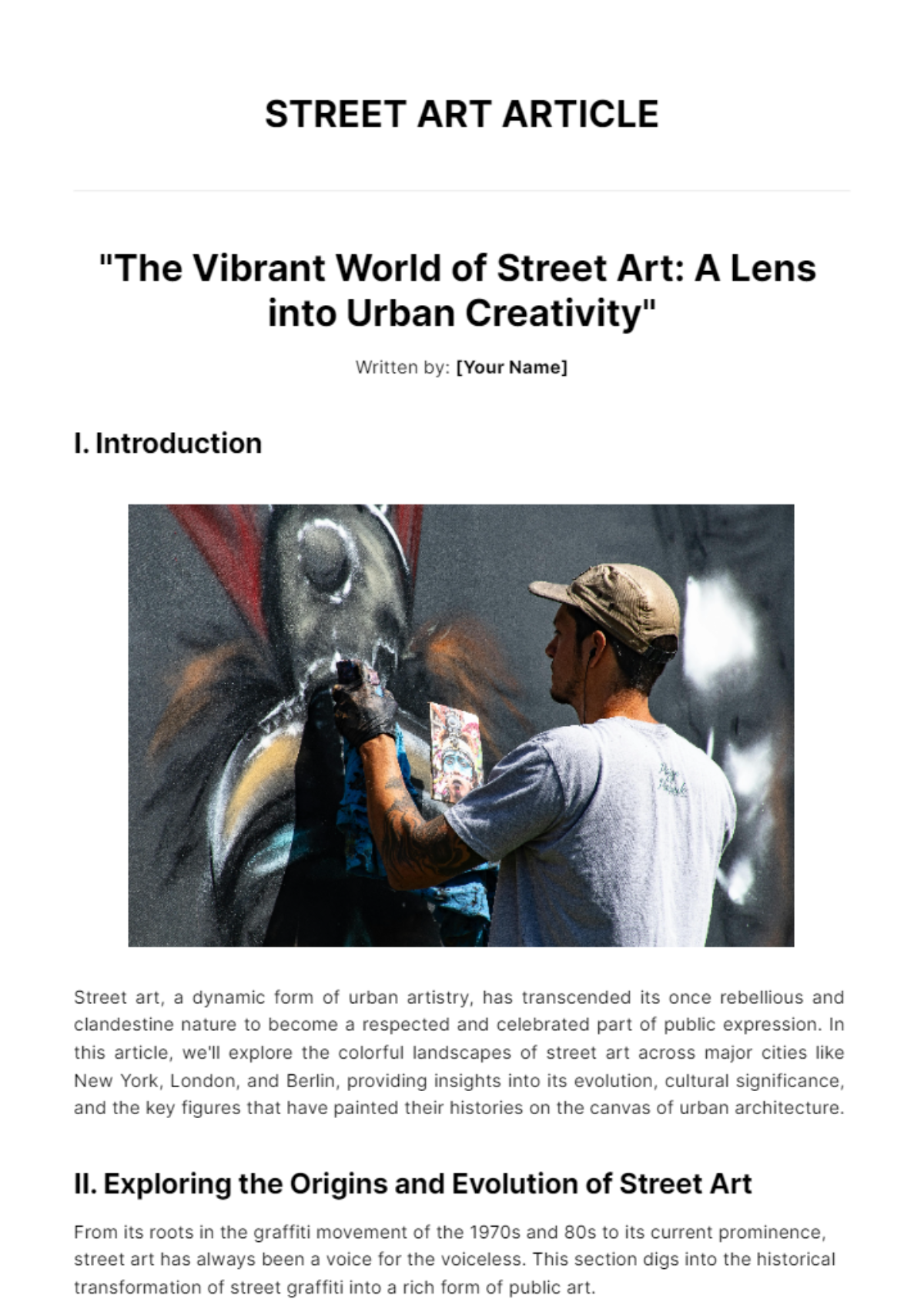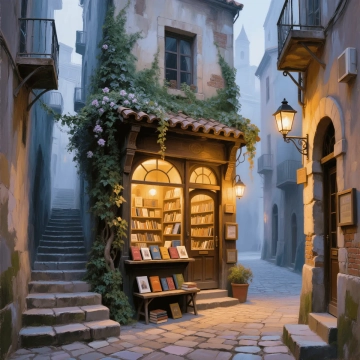Free Street Art Article

"The Vibrant World of Street Art: A Lens into Urban Creativity"
Written by: [Your Name]
I. Introduction

Street art, a dynamic form of urban artistry, has transcended its once rebellious and clandestine nature to become a respected and celebrated part of public expression. In this article, we'll explore the colorful landscapes of street art across major cities like New York, London, and Berlin, providing insights into its evolution, cultural significance, and the key figures that have painted their histories on the canvas of urban architecture.
II. Exploring the Origins and Evolution of Street Art
From its roots in the graffiti movement of the 1970s and 80s to its current prominence, street art has always been a voice for the voiceless. This section digs into the historical transformation of street graffiti into a rich form of public art.
A. Early Days of Street Art
The graffiti boom in places like New York and London set the stage for what would become a global art movement. Early artists like Jean-Michel Basquiat pushed the boundaries of legality and artistry with their vibrant tags and murals.
B. Mainstream Acceptance and Artistic Expansion
As urban cultures began to embrace this form of expression, street art evolved, incorporating various techniques like stenciling, sticker art, and installations, increasing not only its visibility but also its acceptance within the art world.
III. Major Contributors and Iconic Works.
Banksy: Known for his politically-charged stencil art that often critiques contemporary society and politics.

Shepard Fairey (Obey): Recognized for his iconic "Obey Giant" campaign and the "Hope" poster featuring Barack Obama.

Vhils: Known for carving portraits into urban surfaces, revealing layers of a city's history and culture.

IV. The Impact of Street Art in Urban Development
Street art is not just about aesthetics but also about how it can drive social and economic change in urban landscapes. Below is an analysis of how street art contributes to the vitality of cities.
A. Social Implications
Street art often conveys messages of hope, resistance, and awareness, becoming a crucial platform for community dialogue and engagement.
B. Economic Benefits
Regions noted for their vibrant street art scenes, like Wynwood in Miami, attract tourists and spur economic activity, proving that art can be a powerful stimulant for commercial growth.
V. Visiting Street Art Hotspots
For those eager to explore some of the most spectacular expressions of street art, here are prime locations worth visiting:
Location | Highlights | Recommendations |
|---|---|---|
Brooklyn, NYC | Home to works by Banksy and Fairey | Take a walking tour in Bushwick |
Shoreditch, London | Famed for its street art tours | Explore Brick Lane for hidden gems |
Kreuzberg, Berlin | Large murals depicting social themes | Visit the East Side Gallery along the Berlin Wall |
VI. Conclusion
Street art remains a powerful medium that reflects societal changes and offers a unique perspective on urban life. It beautifies cities, inspires residents, and encourages tourists to explore new areas. As these urban canvases continue to evolve, they ensure that the pulse of the city is not only maintained but invigorated.
- 100% Customizable, free editor
- Access 1 Million+ Templates, photo’s & graphics
- Download or share as a template
- Click and replace photos, graphics, text, backgrounds
- Resize, crop, AI write & more
- Access advanced editor
Discover the ultimate resource for crafting captivating articles with the Street Art Article Template from Template.net. This editable and customizable template offers a comprehensive guide to exploring urban creativity, perfect for writers of all levels. Editable in our Ai Editor Tool, it ensures seamless customization for your unique content needs.





























